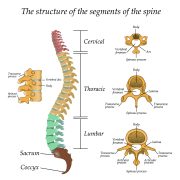
Whether you are biking, running, working out, or even going about your daily life around the house, orthopedic injuries are common and inevitable.
While some orthopedic injuries may start small, they can quickly escalate into something much worse if not properly treated. Therefore, do not skip out on seeing an orthopedic specialist if necessary.
EmergeOrtho—Triangle Region is here when you need treatment, and wants you to know what to expect when you schedule your first orthopedic appointment.
When Should You Make an Orthopedic Appointment?
For many people, the first thing they do after getting injured is to rest, ice, compress, and elevate their injured limb. Also known as the RICE method, it is effective at reducing swelling and aiding the healing process for minor injuries.

However, it is not a solution for everything. While RICE may work for minor injuries that heal independently, it is not adequate for more severe injuries. The last thing you want is a minor sprain turning into a full-blown muscle tear or a stress fracture turning into a complete bone break. With orthopedic injuries, even minor impairments can quickly escalate into something much worse if you let them.
As a general rule, if your pain and swelling have not improved after two to three days of RICE, schedule an orthopedic appointment.
Typical Orthopedic Appointment Examinations and Tests
When you schedule your orthopedic appointment, prepare for three kinds of exams or tests. They include:
- Medical History Exams
- Physical Tests
- Imaging Tests
Medical History Exams look at your current level and area of pain, as well as your history of other medical conditions. To prepare for a medical history exam, be able to describe symptoms including:
- Area of pain
- Type of pain
- Frequency of pain
- Severity of pain
- Impact of pain on daily activity
Your orthopedic specialist should also have access to your medical records. With those records, they can look for possible underlying medical conditions that could contribute to the pain that prompted your visit. However, if you have experienced new symptoms or allergies since your most recent visit to a doctor, inform the orthopedist about them.
Physical Tests examine how your body moves and reacts to your injury. Therefore, the specialist may have you perform actions that involve movement. For example, they may see how well you can walk up and down stairs if your pain affects your lower body.
Although some of the tests might seem trivial, they help provide a better, more accurate diagnosis. With every test, your provider is observing your:
- Flexibility
- Range of motion
- Reflexes
- Swelling
- Visible symptoms of a condition
Imaging Tests are ordered when physical tests cannot, or do not, provide a definitive answer to what is causing your pain. Standard imaging tests include:
- X-ray
- MRI
- Ultrasound
These tests provide further insight into your injury and what is causing your discomfort. However, do not be surprised if your specialist requests imaging tests in unaffected areas of your body. Though it may seem counterintuitive, an undiagnosed injury in one part of the body can cause discomfort in another part of the body.
For example, musculoskeletal problems in the spine or neck can cause discomfort in the shoulder. If undiagnosed, you could treat everything but the underlying issue.
Should You Expect Medical Treatment During Your Orthopedic Appointment?
Whether or not you receive medical treatment during your appointment entirely depends on the injury or condition diagnosis. Typical treatment options include:
- RICE
- Over-the-counter or prescription medicine
- Physical therapy (PT)
- Joint injections
- Orthopedic surgery
If your injury is minor, you will likely receive treatment or a prescription for medication or PT during the appointment. If you require more invasive treatment methods, they will be performed at a separate visit. In addition, your provider may recommend a follow-up appointment to check in on the healing progress after several weeks.
Scheduling Your Orthopedic Appointment
If treated in time, orthopedic specialists can often remedy an orthopedic injury or condition without invasive treatment methods. However, even a minor injury can become more severe and set your recovery back several months. Therefore, make an orthopedic appointment as soon as possible when necessary.
If you recently started experiencing pain and the RICE method has not relieved your pain after two to three days, or the pain is severely inhibiting your daily life, it is time to see a specialist.
At EmergeOrtho—Triangle Region, our orthopedic specialists will provide the most accurate diagnosis possible. Our orthopedic specialists are committed to getting you back to your everyday, pain-free life as soon as possible and helping you Emerge Stronger. Better. Healthier.
To schedule an orthopedic appointment today, click here. Or, call us at any time at (919) 220-5255.








